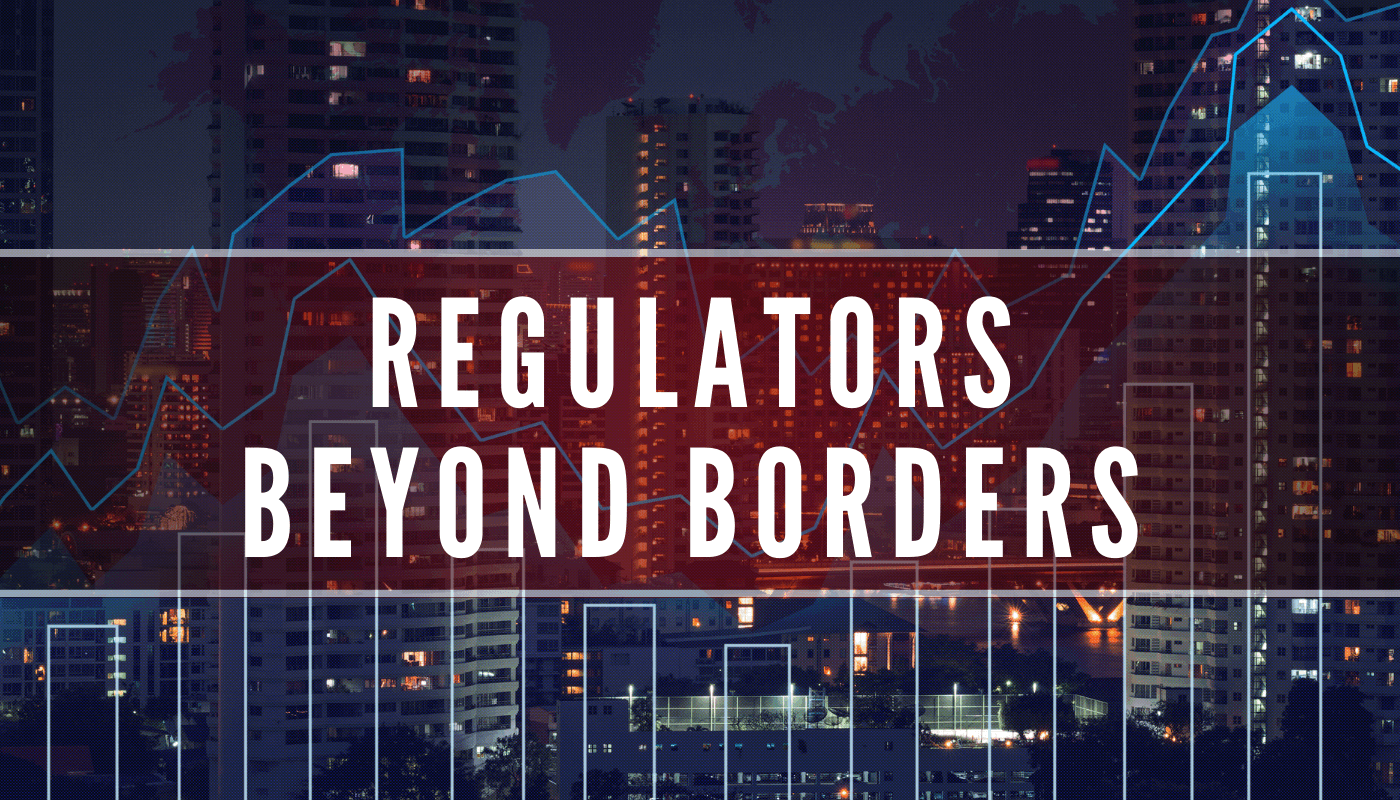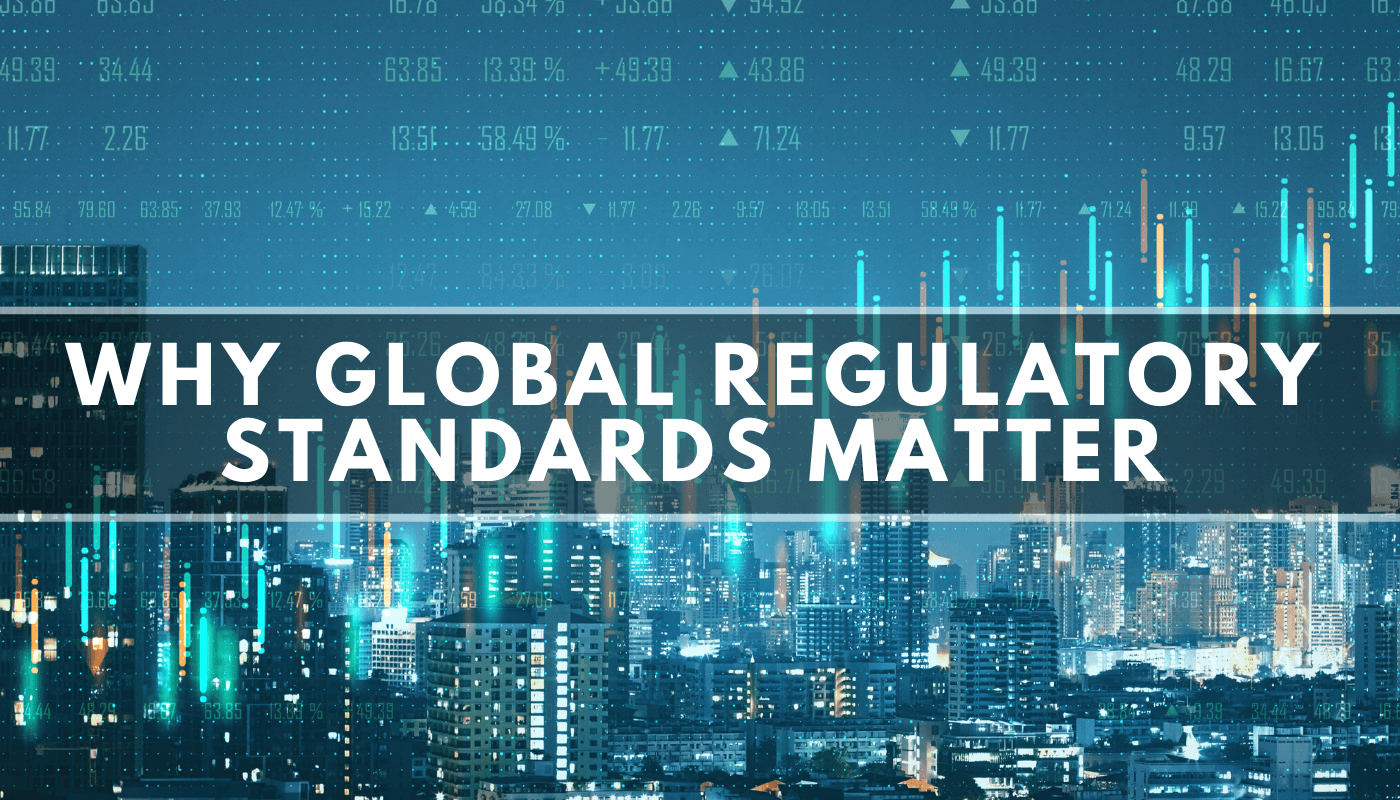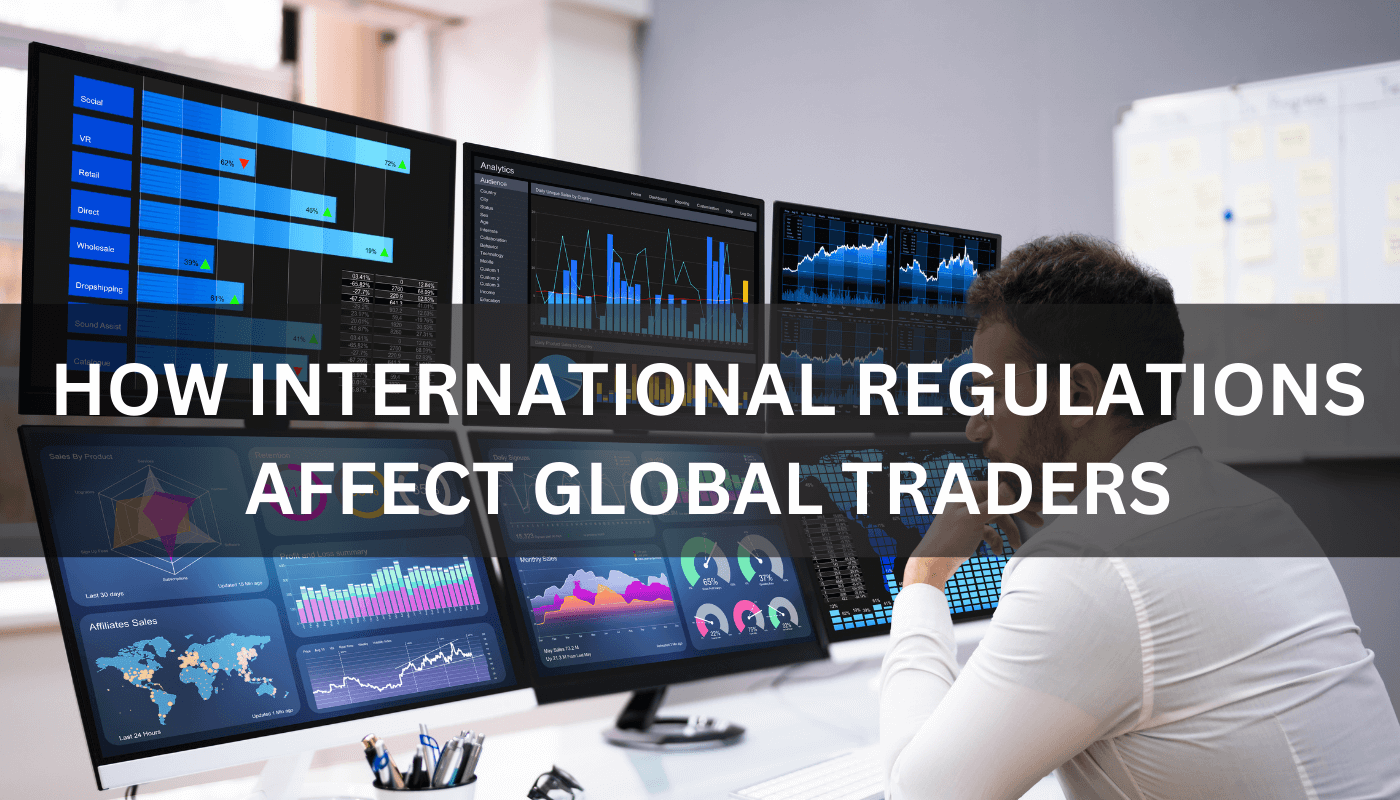Regulators Beyond Borders: Why Global Standards Matter
Learn why global financial regulators like FSCA shape markets and protect traders across borders.
 Writen by:
Arslan Ali But
12 February 2025
8 minutes read
Writen by:
Arslan Ali But
12 February 2025
8 minutes read


Today’s financial markets are more connected than ever, giving traders access to opportunities across the globe. But with this global reach comes a big question—who’s making sure everything stays fair and secure? That’s where financial regulators step in, setting the rules that protect investors and keep markets running smoothly.
While many have heard of major regulators like the U.S. Securities and Exchange Commission (SEC) or the UK’s Financial Conduct Authority (FCA), lesser-known organizations, such as South Africa’s Financial Sector Conduct Authority (FSCA), are also shaping the trading landscape. These regulators help ensure that brokers play by the rules, giving traders confidence when investing internationally.
Understanding global regulations can open doors to safer and smarter trading. In this article, we’ll explore why international regulatory standards matter, how organizations like the FSCA impact traders, and what you can do to stay compliant and maximize your opportunities.

Why Global Regulatory Standards Matter
In today's interconnected world, financial markets are no longer confined to national borders. Traders can access global opportunities with just a few clicks, but this accessibility also introduces regulatory challenges. Without consistent rules, navigating different markets can become confusing and risky. That’s why global regulatory standards are essential—they provide a unified framework that ensures fair trading, protects investors, and promotes market stability.
Consistent regulations across jurisdictions help level the playing field, making it easier for traders and businesses to operate with confidence. They minimize discrepancies that could otherwise lead to regulatory arbitrage—where companies exploit weaker regulations in certain regions. By enforcing clear standards, regulators work to prevent fraud, insider trading, and market manipulation, safeguarding both retail and institutional investors.
A lack of global coordination can have serious consequences. For example, during the 2008 financial crisis, regulatory gaps across countries contributed to market instability, causing massive losses for investors worldwide. More recently, differences in how various countries regulate cryptocurrencies have led to confusion and potential risks for traders navigating multiple jurisdictions.
By aligning regulatory frameworks, international bodies help create a safer, more predictable trading environment—empowering traders to seize opportunities with greater confidence and security.
Financial regulation plays a crucial role in ensuring fair and transparent markets. Various regulatory bodies oversee global financial activities, each with specific mandates to protect investors.

Overview of Major Regulatory Bodies
Several major regulators set the standards for global financial markets, collectively overseeing trillions of dollars in assets:
- Financial Conduct Authority (FCA) – UK: Regulates over 50,000 financial firms and manages a market worth more than £8 trillion, focusing on consumer protection and fair competition.
- U.S. Securities and Exchange Commission (SEC): Oversees the U.S. securities markets, which represent nearly 60% of the global stock market, with a total capitalization exceeding $50 trillion.
- Australian Securities and Investments Commission (ASIC): Supervises over 6,000 financial service providers, ensuring transparency in a market valued at $2 trillion AUD.
- European Securities and Markets Authority (ESMA): Regulates financial markets in 27 EU member states, covering more than $20 trillion in assets.
- Commodity Futures Trading Commission (CFTC) – U.S.: Oversees the U.S. derivatives market, which accounted for over $600 trillion in notional value in recent years.
These regulators work to prevent fraud, promote market integrity, and enhance investor confidence.
Lesser-Known Regulators with Global Influence
Beyond the widely recognized regulators, several emerging authorities are shaping regional markets and gaining global influence:
Financial Sector Conduct Authority (FSCA) – South Africa:
- Oversees a financial sector valued at over $1 trillion, ensuring fair market practices.
- International brokers operating in South Africa must comply with FSCA standards, which enhance investor trust and protect against fraud.
- Example: In 2022, FSCA imposed fines exceeding R50 million on firms found guilty of misleading investors.
Securities Commission Malaysia (SCM):
- Regulates over 900 financial institutions, ensuring compliance with investor protection laws.
- Malaysia's financial market has grown by 15% annually, attracting more international investors.
- Example: SCM recently introduced stricter regulations on crypto trading platforms, ensuring compliance with global anti-money laundering standards.
Dubai Financial Services Authority (DFSA):
- Oversees Dubai’s financial sector, which has grown by 20% year-over-year, attracting global firms.
- Works to align regulations with international standards, making Dubai a leading financial hub in the Middle East.
- Example: In 2023, DFSA introduced new guidelines for crypto exchanges, positioning Dubai as a crypto-friendly destination with a compliance-driven approach.
Understanding the role of these regulators helps traders navigate compliance requirements and seize opportunities in international markets with confidence.

How International Regulations Affect Global Traders
Financial markets are increasingly interconnected, allowing traders to engage across multiple jurisdictions. However, differing regulations can create challenges. Global regulatory compliance helps bridge these gaps, offering traders and businesses a more stable and predictable environment.
Benefits of Global Regulatory Compliance
Adhering to international regulatory standards offers several key benefits for traders and investors:
Increased Market Access and Liquidity:
- Regulatory compliance opens doors to larger financial markets, providing access to deeper liquidity pools.
- For example, markets regulated by the European Securities and Markets Authority (ESMA) collectively handle over €30 trillion in trading volume annually, enabling traders to execute orders more efficiently.
Higher Investor Protection and Risk Mitigation:
- Compliance with strict regulations, such as those imposed by the FCA and SEC, reduces the risk of fraud and market manipulation.
- In 2023, SEC enforcement actions resulted in $4 billion in penalties, safeguarding investor interests and maintaining trust in the system.
Standardized Trading Practices:
- Global regulations establish uniform trading rules, reducing confusion for traders operating across borders.
- Brokers regulated under multiple jurisdictions, such as ASIC and FSCA, offer consistent reporting standards, making it easier for traders to compare opportunities.
- Example: A trader using a broker licensed by both the FCA and ASIC can seamlessly switch between markets without facing inconsistent compliance requirements. This standardization helps traders avoid costly mistakes and enhances operational efficiency.
By adhering to global regulations, traders not only protect their investments but also gain confidence in operating across various financial ecosystems with greater transparency and reduced risk.

Challenges Faced by Traders Due to Regulatory Differences
While global regulatory compliance offers many benefits, traders often face significant challenges due to differing rules and requirements across regions.
Varying Compliance Requirements:
- Different jurisdictions impose unique rules on leverage, margin requirements, and trading conditions.
- For instance, ESMA caps leverage at 30:1, while the Securities Commission Malaysia (SCM) allows leverage up to 100:1, creating disparities in trading strategies.
Taxation and Reporting Confusion:
- International traders must navigate complex tax regulations and reporting obligations that vary widely between countries.
- For example, U.S. traders must comply with IRS reporting rules, while European investors face EU-wide tax directives, leading to potential misreporting issues.
- Example: A trader operating in both Europe and Asia may struggle with ESMA’s strict leverage limits while enjoying higher leverage allowances under SCM. This inconsistency requires careful strategy adjustments and risk management to avoid overexposure.
Broker Compliance Challenges:
- Brokers must obtain multiple licenses to serve clients across regions, adapting their platforms to meet local regulatory demands.
- In 2023, leading brokers spent an average of 15-20% of their operating budgets on compliance-related expenses to meet the standards of regulators like the FCA, ASIC, and DFSA.
Navigating these complexities requires careful planning and choosing brokers with multi-jurisdictional compliance to ensure a seamless trading experience across global markets.

The Role of FSCA and Its Global Impact
The Financial Sector Conduct Authority (FSCA) of South Africa plays a vital role in regulating the financial markets, ensuring fair trading practices, and fostering investor confidence. As a key regulatory body in Africa, the FSCA’s influence extends beyond national borders, shaping the operations of international brokers and financial institutions.
FSCA's Objectives and Regulatory Approach
The FSCA focuses on market conduct regulation and financial stability, ensuring that financial service providers operate transparently and ethically. Its key policies include:
- Licensing Requirements: All financial firms must obtain FSCA approval to operate, ensuring compliance with local and international standards.
- Financial Reporting Standards: Firms must adhere to strict reporting guidelines to promote transparency and investor protection.
- Focus on Emerging Markets and Fintech: The FSCA actively engages with fintech firms, creating regulatory frameworks that encourage innovation while maintaining security.
South Africa's growing financial sector, valued at over $1 trillion, has made FSCA regulation crucial for brokers seeking to expand into African markets.
Case Studies of FSCA-Enforced Actions
The FSCA has taken decisive action against fraudulent brokers, reinforcing its commitment to market integrity.
- Fraudulent Brokers: In 2023, the FSCA imposed fines exceeding R50 million on firms found guilty of misrepresenting investment opportunities, highlighting its strict enforcement approach.
- Impact on Broker Reputation: Compliance with FSCA regulations enhances brokers' credibility, attracting global investors seeking secure trading environments.
- International Collaboration: The FSCA partners with regulators like the FCA and ESMA to combat cross-border financial fraud, ensuring consistent regulatory oversight and investor protection across jurisdictions.
These efforts solidify the FSCA’s reputation as a key player in global financial regulation.

How Traders Can Stay Compliant with Global Regulations
Navigating global financial regulations can be challenging, but traders can take proactive steps to ensure compliance and protect their investments.
Research Broker Regulatory Credentials:
- Before opening an account, verify if the broker is licensed by reputable regulators such as the FSCA, FCA, or ASIC.
- Checking these official sites helps traders confirm a broker’s legitimacy and avoid fraudulent platforms.
Choosing Multi-Regulated Platforms:
- Opting for brokers regulated by multiple authorities offers greater investor protection and legal security.
- Example: Platforms like eToro and AvaTrade are regulated by multiple bodies, including the FCA and ASIC, ensuring compliance across different regions.
Staying Updated on Regulatory Changes:
- Regulations frequently evolve, impacting trading conditions such as leverage limits and tax requirements.
- Visiting regulatory websites, subscribing to updates from sites like Investopedia and Finance Magnates helps traders stay informed.
Seeking Legal and Tax Advice:
- Cross-border trading comes with taxation and reporting complexities.
- Example: A trader using brokers like OANDA, regulated by multiple jurisdictions, benefits from added fund protection and compliance with global standards.
Conclusion
Global regulatory standards are essential for ensuring market integrity, protecting traders, and fostering trust in financial markets. Adhering to regulations helps prevent fraud, promotes transparency, and allows traders to operate with confidence across jurisdictions. Choosing brokers regulated by credible authorities such as the FSCA, FCA, and SEC can provide added security and compliance assurance.
To trade confidently, it’s crucial to stay informed on regulatory updates and select brokers with multi-jurisdictional oversight.
Ready to trade confidently across borders? Choose FSCA- and FCA-regulated brokers to ensure compliance and security. Explore trusted SEC-regulated brokers on WhereToTrade and start your journey toward secure and successful trading today!
Table of contents
1. Why Global Regulatory Standards Matter 2. Overview of Major Regulatory Bodies 3. How International Regulations Affect Global Traders 4. The Role of FSCA and Its Global Impact 5. Conclusion






